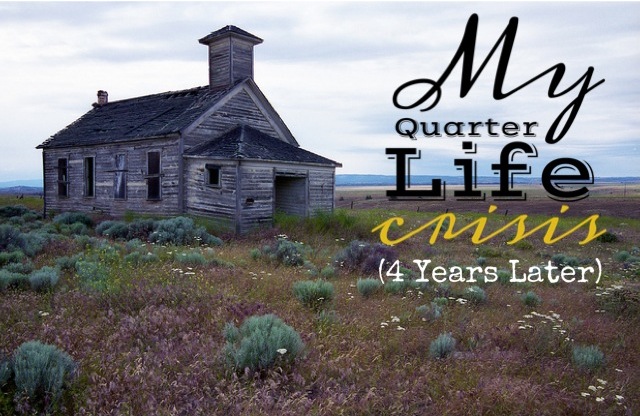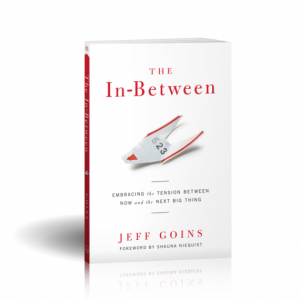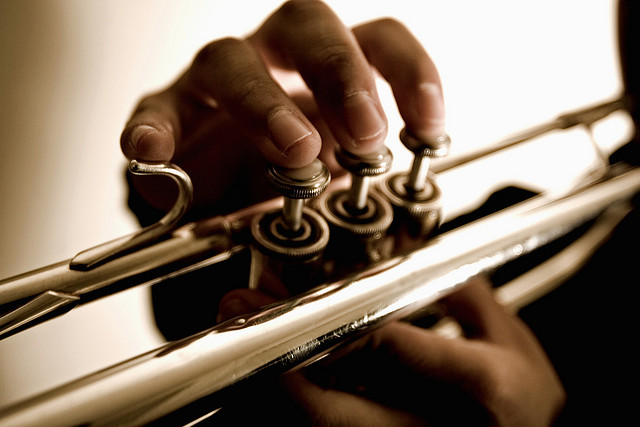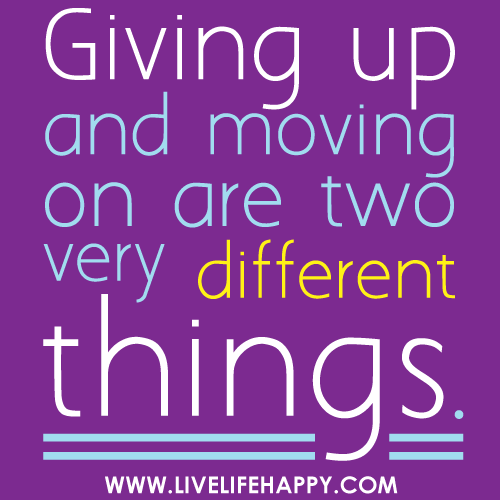
[Read Part I Here]
“With professional athletes drafted out of high school and A-list singer-actors in their teens, we’re made to feel that if we haven’t achieved something monumental by the age of twenty-five, then we’re already over the hill.”
“Some adults — usually those in a midlife crisis— roll their eyes when they hear ‘Quarterlife Crisis.’ ‘Twentysomethings can’t be in a crisis!’ they say. ‘When you have your youth and freedom, you have nothing to complain about.’
“I try turning the tables. ‘If that’s your reason for dismissing a Quarterlife Crisis,’ I reply, ‘then how can you complain about a midlife crisis when you have a spouse, a car, a savings account, and a backyard with a pool?’ They are not amused. The generation gap grows fierce.” – Alexandra Robbins, It’s A Wonderful Lie
It didn’t take me long in my reading to identify with what these twentysomethings were talking about, but when I spoke about it with other people I found myself being met with laughter, scoffing and general mockery, just like the above quotation. People didn’t understand. This only made me want to turn even more into myself. Learning that this was actually a very normal thing for people my age, even if I might be the only one of my group of friends going through it, I was comforted. Later, I was able to talk to another close friend who went through a similar experience, just a year-and-a-half after I had.
My biggest questions at the time were “Who am I? What makes me unique? Where am I going?” Four years ago I struggled to respond well to these questions because I seemed to have and want all the same things that my friends from University did. We all mostly worked in the same field, had the same values etc. We didn’t all have the same likes and dislikes, but that didn’t seem to mean much at the time. “Where am I going?” was the scariest question of all. I had no idea. I was unhappy with my work situation, but felt trapped there because of my student loans. I fantasized about moving to Montreal and working at Starbucks, but that wasn’t a better option. I didn’t really want what I had. What I really wanted to was to marry a confident, ambitious man with a stable job who would love me and impregnate me and let me stay at home with our kids. But that didn’t seem like the right thing for a University grad to want right out of University. I felt guilty for having a degree and wanting to not use it, especially when my mom’s biggest life regret was not getting a degree.
I felt like (and was?) the biggest ungrateful whining spoiled child ever, and still couldn’t change how I felt.
My friend Amanda
Maybe you can identify more with Amanda. Her crisis came a year and a half after mine.
Like me, she graduated from Queen’s University with a (similar) degree in Geography/Women’s Studies. She didn’t know what she wanted to do with her life (read: career) but knew she didn’t want to do her Masters and that would be the level of education she’d need in order to use her degree practically. She had a significant amount of student loan debt and knew she couldn’t go back home to live with her parents because it just wasn’t an environment conducive to growing up. I like to say I convinced her to move to Montreal, but I’m pretty sure she’s an adult and came to this conclusion on her own. She came to Montreal and stayed with some generous friends while she tried to find a job. After weeks of looking, she managed to get a job at Second Cup — far from her dream post-undergrad job. She started looking for a church while trying to figure out her way in a bilingual city, knowing no French.
She hated the question, “where do you work?” because she graduated from Queen’s, well known for grooming snobs (I can say that because I am one) and she resented the fact that she worked at a chain coffee shop. As she started spiralling down into her own quarter-life-crisis, having no plan for a career because she didn’t know what she wanted to do with her life. I tried to remind her of a few important things: she had her faith, friends, family (at a distance) and was working on paying off her debt. These are key things in growing up! But I knew, having been in her position, that this was probably not as encouraging as it should be.
Growing up is hard to do
It was an extremely uncomfortable time for us, especially doing it alone. We were letting things about our lives define us instead of who we were and who we were becoming. We didn’t know who we were becoming and we weren’t sure if we were going to like us!
Were we still the same person we were in High School even though we haven’t achieved any of the goals we thought we would by now? “Who am I without having achieved anything significant?” we wondered.
But four years later, I’m doing more than OK. So is Amanda. Our life isn’t turning out how we expected it to, but we’ve come to terms with that. It’s OK.
What’s the solution?
As I was chatting with Amanda about publishing this post we agreed on this: this time was essential in developing our character. We learned what hard, thankless work meant and that lesson is invaluable. We learned more about our own faith and the truth of where and who we were putting it in.
I wish I could say “just do X” or “believe Y” to make the difficulty of the Quarter Life Crisis go away. I can’t. There’s no magic answer. It’s simply an awkward second puberty that only happens to some people. We struggle awkwardly in growing up. It’s hard. We learn we can’t base our identity in circumstances that could change like marital status, career possibilities, even family. Crisis happens, even when we know it’s rooted in our entitlement and spoiled-ness, which makes it even more frustrating.
We become, and years later we are still becoming. This is both scary and hopeful.
 Last week I mentioned a few books that helped me process and understand my quarter life crisis. (For the record, I still feel stupid every time I write that phrase.) Honestly, none of them were Book Saviour of my situation. Nothing I came across carried the epiphany that solved my broody inner conflict.
Last week I mentioned a few books that helped me process and understand my quarter life crisis. (For the record, I still feel stupid every time I write that phrase.) Honestly, none of them were Book Saviour of my situation. Nothing I came across carried the epiphany that solved my broody inner conflict.



